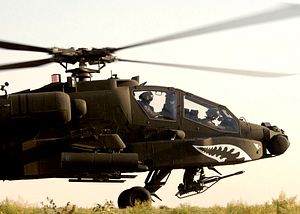Time for your Friday China links:
The United States is on the verge of announcing a new arms sale to Taiwan, Josh Rogin reports for Bloomberg View. The sale, reportedly worth $1 billion, will be the first in four years – “the longest gap between sales since the Taiwan Relations Act passed Congress in 1979,” Rogin notes. Rogin, citing U.S. officials, says the deal will offer Taiwan “transfers of missile frigates, about a dozen AAV-7 amphibious assault vehicles, one replacement AH-64 Apache helicopter and munitions including Stinger, Javelin and TOW missiles.”
The news comes after two top U.S. Senators wrote a letter to the White House, pressing it to move forward with sales. You can read the letter, from Senators Benjamin Cardin and John McCain, here.
Earlier this week, a U.S. general said that China has made arrangements to open a military base in Djibouti, on the Horn of Africa. Thursday, for the first time, a Chinese official confirmed the plans. Foreign Ministry spokesperson Hong Lei said that “China and Djibouti are friendly countries. We are consulting with each other on the building of logistical facilities in Djibouti, which will better serve Chinese troops when they carry out international peacekeeping operations, escort ships in the Gulf of Aden and the waters off the Somali coast and perform humanitarian rescue.”
In case you were wondering, China is unlikely to join the military fight against Islamic State. The Global Times outlines why you shouldn’t expect Beijing to join in the air strikes, much less ground combat: “It will be a significantly major policy decision if China sends troops to the Middle East or conducts precision attacks far away. Despite the West’s high expectations for China’s participation, the Chinese government will be extremely prudent in making such a decision.” GT concludes that, due to the complexity of the situation, the benefits of joining the fight are far outweighed by the potential costs.
There is one place where China does directly take up arms against terrorism: in Xinjiang province, where China has enlisted both its paramilitary forces to fight against Uyghur separatist groups. Hannah Beech of Time secured interviews with some of the people actually fighting China’s “war on terror.”
In other news, Fars News reports that Chinese companies are eyeing investing in Iran’s Chabahar port. China’s ambassador to Iran, Pang Sen, visited the port last week and said that “China has invaluable experiences in port construction and can help Iran to modernize Chabahar port.” Fars News notes that “several foreign countries” are weighing investing in Chabahar – one of those countries is India, which plans to lease the port and use it to bypass Pakistan in trading with Afghanistan and Central Asia.
Finally, in case you need a gift idea for the China-watcher on your holiday list: Julia Lovell reviews the book Shadow Cold War by Jeremy Friedman. Friedman looks at the role China played in the Cold War – often understood as a conflict solely between the USSR and the United States – as all three vied for influence in the developing world. China’s modern-day positioning of itself as the champion of the developing world has its roots in this competition

































